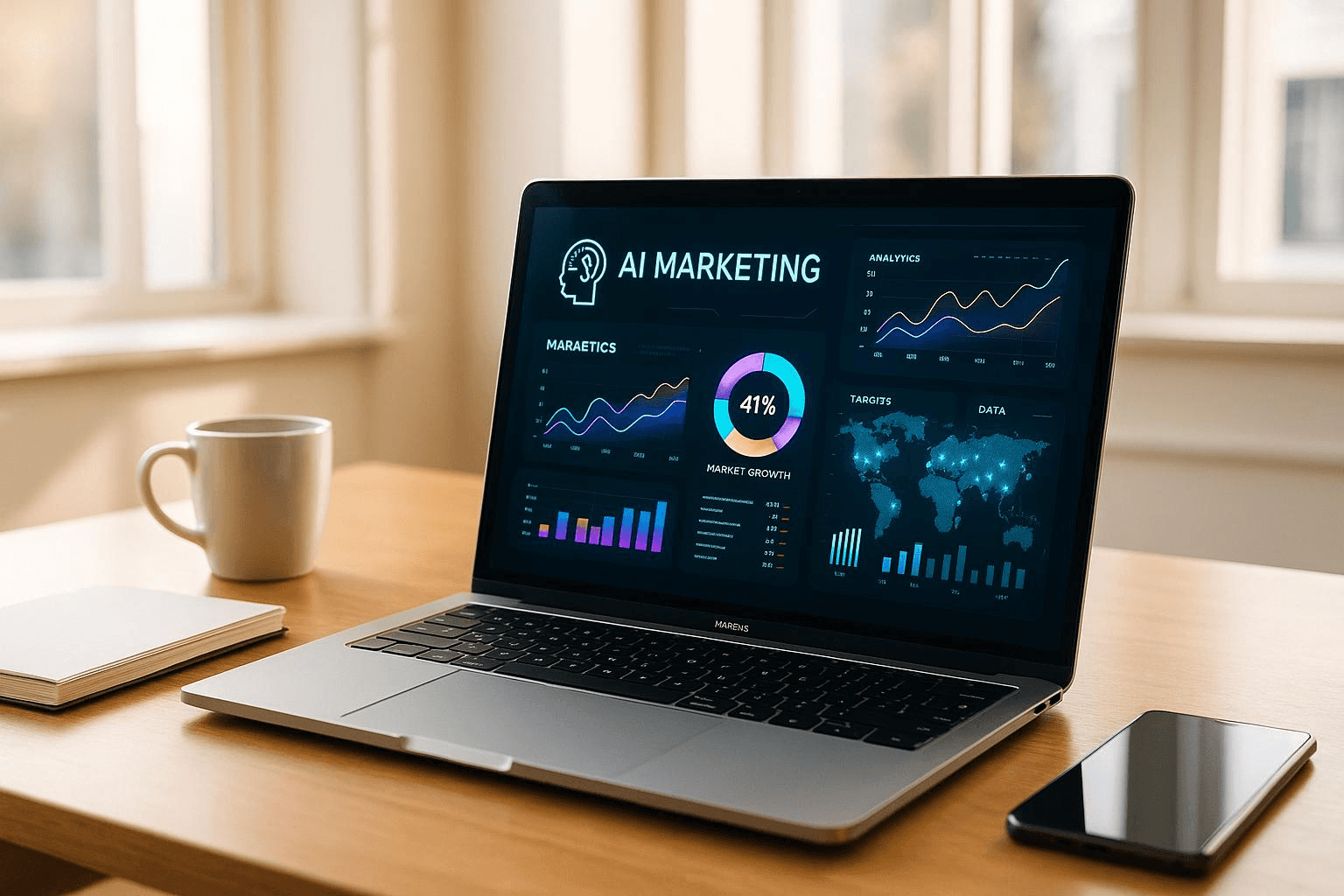Annotation
- Introduction
- Understanding AI's Impact on Email Marketing Personalization
- The Core Principles of Personalization in Email Marketing
- Benefits of AI in Campaign Personalization
- Analyzing Individual Customer Data
- Predicting Future Customer Behavior
- Dynamic Content and Proactive Messaging
- Leveraging AI for Email Marketing: A Step-by-Step Guide
- Pros and Cons
- Conclusion
- Frequently Asked Questions
AI Email Marketing: Boost Personalization and Campaign Performance
AI email marketing uses artificial intelligence to personalize campaigns, predict customer behavior, and boost engagement through data-driven

Introduction
Artificial intelligence is revolutionizing email marketing by transforming generic campaigns into personalized experiences. AI analyzes customer data to deliver targeted content that boosts engagement and conversions. This guide explores how AI enhances personalization through dynamic content and predictive analytics for better campaign results.
Understanding AI's Impact on Email Marketing Personalization
What is AI Email Marketing?
AI Email Marketing integrates artificial intelligence to automate and optimize campaigns. It uses algorithms to analyze data, predict behaviors, and personalize content at scale, going beyond basic segmentation with machine learning for relevant messaging.
The Core Principles of Personalization in Email Marketing
Effective personalization relies on data-driven insights, advanced segmentation, dynamic content adaptation, behavioral triggers, and recommendation systems. These principles, enhanced by AI, improve engagement metrics significantly.
Benefits of AI in Campaign Personalization
Analyzing Individual Customer Data
AI processes vast data to create detailed profiles, enabling content that resonates with individual preferences through purchase history, browsing behavior, engagement metrics, demographics, and sentiment analysis.
Predicting Future Customer Behavior
AI predicts customer actions using pattern recognition, machine learning, churn scoring, lifetime value estimation, and content preference modeling for proactive messaging.
Dynamic Content and Proactive Messaging
Dynamic content adapts based on recipient traits, with product recommendations, geographic personalization, behavioral adaptation, and real-time updates. Proactive messaging triggers communications for welcome sequences, cart reminders, and re-engagement.
Leveraging AI for Email Marketing: A Step-by-Step Guide
Step 1: Data Collection and Integration
Collect and integrate data from multiple sources into a unified profile, ensuring quality and compliance for AI analysis.
Step 2: Implementing AI Tools
Select and integrate AI tools based on needs, with platform integration, team training, and performance testing for automation and personalization.
Step 3: Creating Personalized Content
Use AI insights for multi-dimensional segmentation, optimized subject lines, dynamic content, behavioral triggers, and consistent experiences across channels.
Step 4: Monitoring and Optimization
Monitor KPIs, track performance, conduct tests, analyze insights, and refine strategies for continuous improvement.

Pros and Cons
Advantages
- Significantly higher engagement rates through hyper-personalization
- Automated optimization of sending times and content relevance
- Scalable personalization across large subscriber databases
- Predictive insights for proactive customer communication
- Reduced manual effort through AI-driven automation
- Improved conversion rates and customer lifetime value
- Continuous learning and optimization from performance data
Disadvantages
- Substantial implementation costs for advanced AI solutions
- Dependence on comprehensive, high-quality customer data
- Complex integration with existing marketing technology stacks
- Potential privacy concerns with extensive data collection
- Requires specialized expertise for optimal configuration
Conclusion
AI-powered email marketing transforms campaigns into personalized experiences that drive engagement and conversions. By leveraging data analysis, predictive analytics, and dynamic content, businesses can achieve higher metrics and stronger customer relationships. Despite implementation challenges, the benefits make AI essential for modern marketing strategies and long-term growth.
Frequently Asked Questions
How does AI improve email marketing personalization?
AI enhances email personalization by analyzing individual customer data, predicting behavior patterns, and dynamically adapting content based on recipient preferences, ensuring each email feels uniquely relevant.
What are the main benefits of AI email marketing?
Key benefits include significantly higher engagement rates, automated optimization, scalable personalization, predictive insights, reduced manual effort, and improved conversion metrics across all campaigns.
How can businesses start with AI email marketing?
Begin by integrating customer data from multiple sources, then implement AI tools that align with your needs, create personalized content strategies, and continuously monitor performance for optimization.
What types of companies benefit from AI email marketing?
All businesses can benefit, particularly e-commerce companies, B2B marketers, subscription services, and any organization seeking to improve customer engagement through personalized communication.
Is AI email marketing cost-effective for small businesses?
While advanced AI solutions can be expensive, many affordable platforms offer basic AI features that provide significant personalization benefits for small to medium-sized businesses.
Relevant AI & Tech Trends articles
Stay up-to-date with the latest insights, tools, and innovations shaping the future of AI and technology.
Grok AI: Free Unlimited Video Generation from Text & Images | 2024 Guide
Grok AI offers free unlimited video generation from text and images, making professional video creation accessible to everyone without editing skills.
Top 3 Free AI Coding Extensions for VS Code 2025 - Boost Productivity
Discover the best free AI coding agent extensions for Visual Studio Code in 2025, including Gemini Code Assist, Tabnine, and Cline, to enhance your
Grok 4 Fast Janitor AI Setup: Complete Unfiltered Roleplay Guide
Step-by-step guide to configuring Grok 4 Fast on Janitor AI for unrestricted roleplay, including API setup, privacy settings, and optimization tips